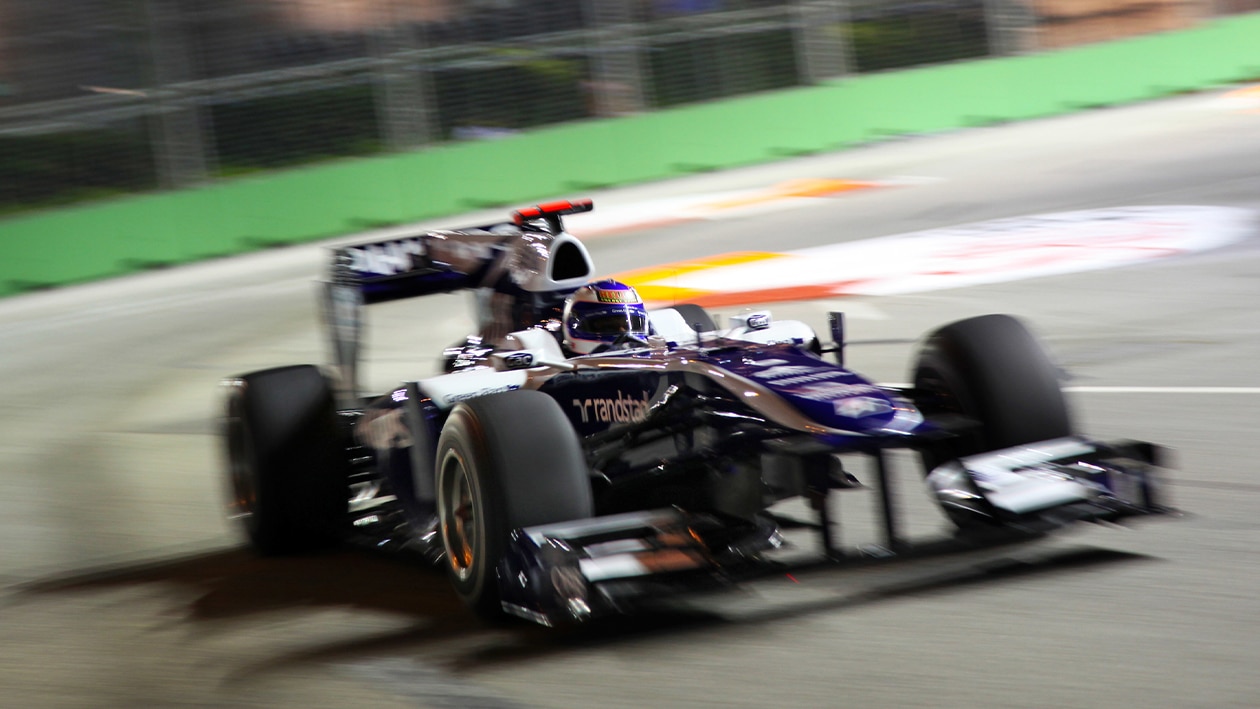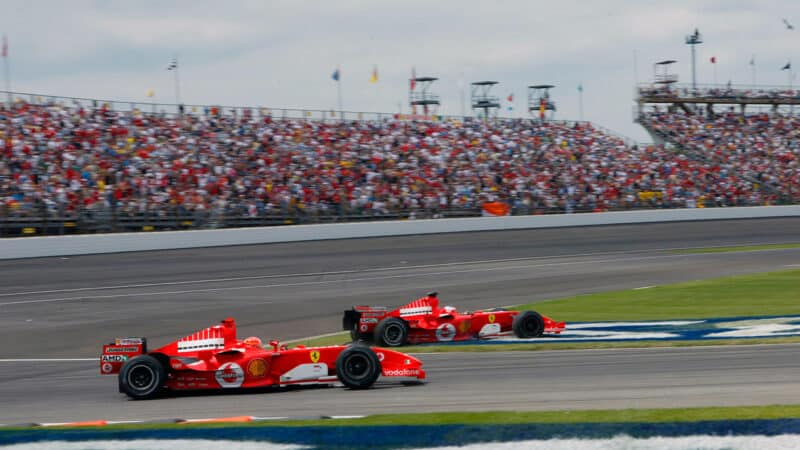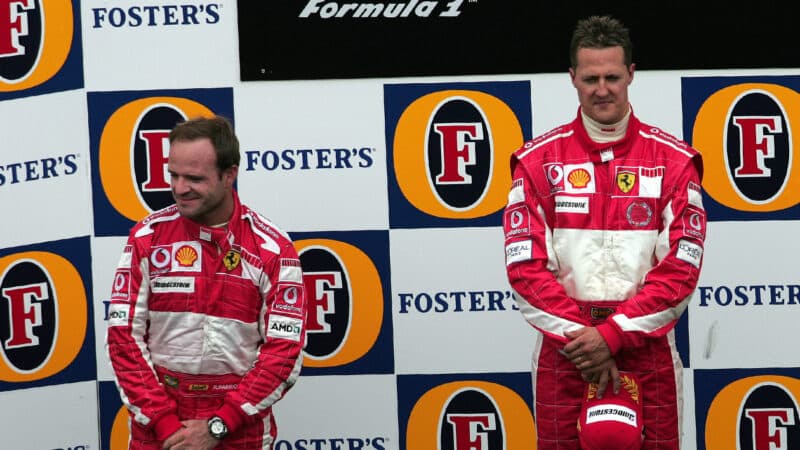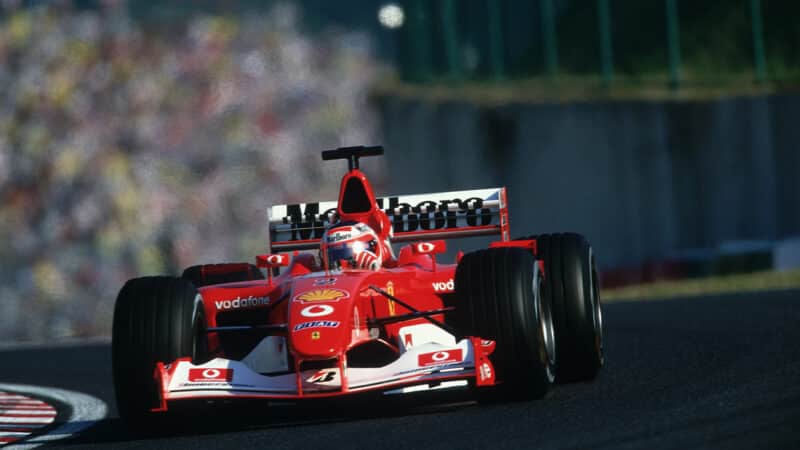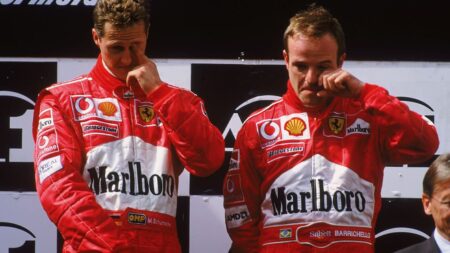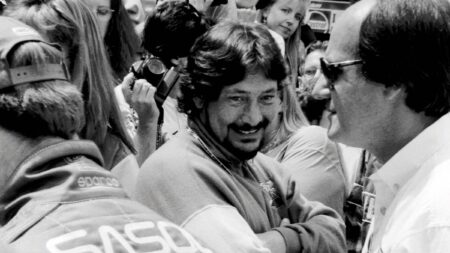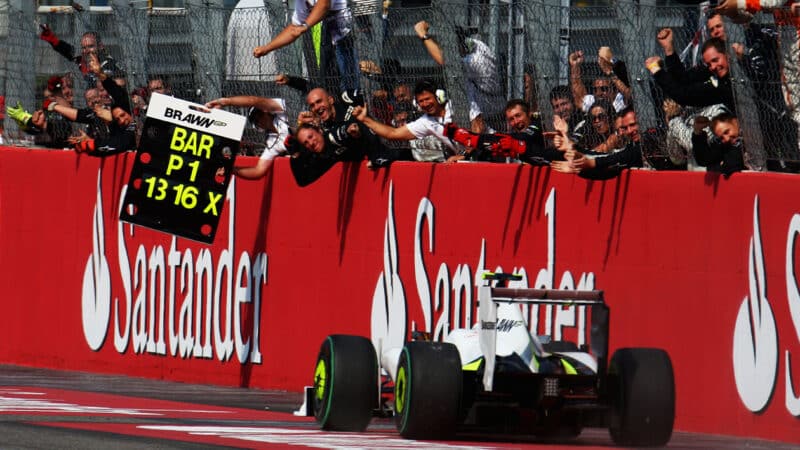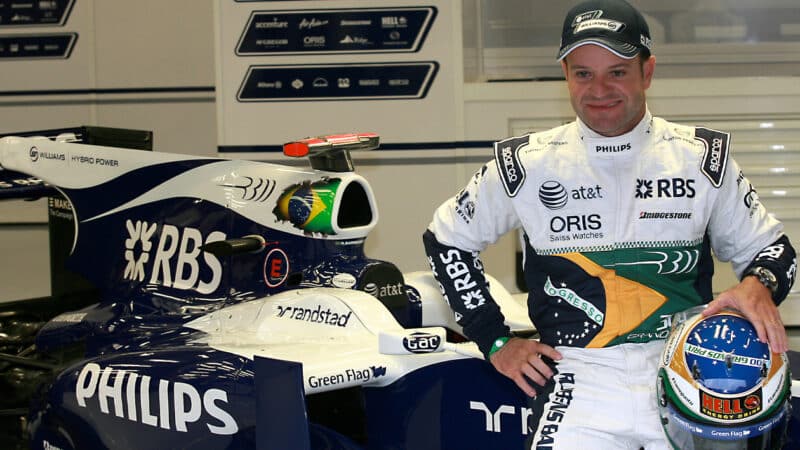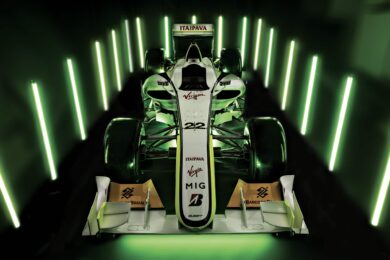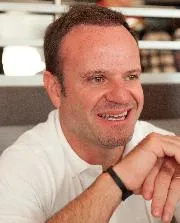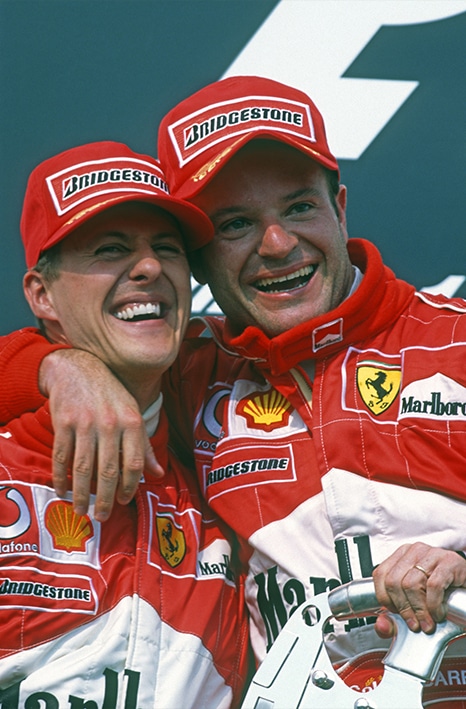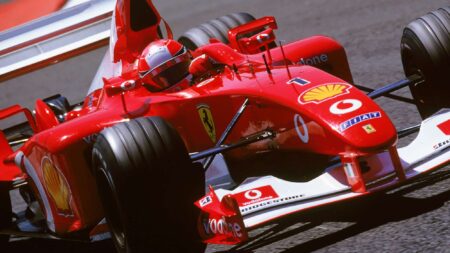“No,” Rubens agreed. “Austria was a ‘visible’ one — but there were plenty of invisible ones. Over time there were many things I heard on the radio that made me say, What?!’
“Still,” he shrugged, “I hate people who seek revenge. Sometimes it feels as though half the people in the paddock are waiting for my book, in which I tell all the secrets and so on — but, you know, I’m not even sure I would do that.”
Barrichello is indeed writing his autobiography, a work in progress for more than a year. “I do it on the plane,” he said. “I’m doing it chronologically, and my memory is quite good, fortunately — the only time where it isn’t sharp is Imola ’94, where Ayrton died. When I had my accident on the Friday, I had a hard bang on the head and lost a little bit of my memory — which probably is good…”
While his situation as Schumacher’s team-mate may have been less than ideal, in those years — as Rubens points out — the second Ferrari was invariably a more competitive proposition than the first anything else. “I never doubted that I had the same equipment as Michael. It was the treatment I got that was so different.”
“If you haven’t got the car in F1, you can do nothing about it”
As it was, when enough had become enough, he requested that he be allowed to leave a year before the end of his contract. Did Ferrari understand his decision — even sympathise with it?
“Oh, I don’t think it changed anything for them. At the end of the day they still had Michael, and they kept winning, so…”
Barrichello, though, did not keep winning, for he moved to Honda, whose disastrous F1 programme has been well chronicled. There were no podiums for him in ’06, and the following year no points.
“The most frustrating thing about F1,” said Barrichello. “is that, if you haven’t got the car, you can do nothing about it — it’s not like tennis where you just have a racquet, and OK, sometimes you have a bad phase, and then you come out of it. I had success at Ferrari, none at Honda, then success again with Brawn, and it was nothing to do with talent — my mind has changed over the years, but I don’t think my actual talent has ever changed.”
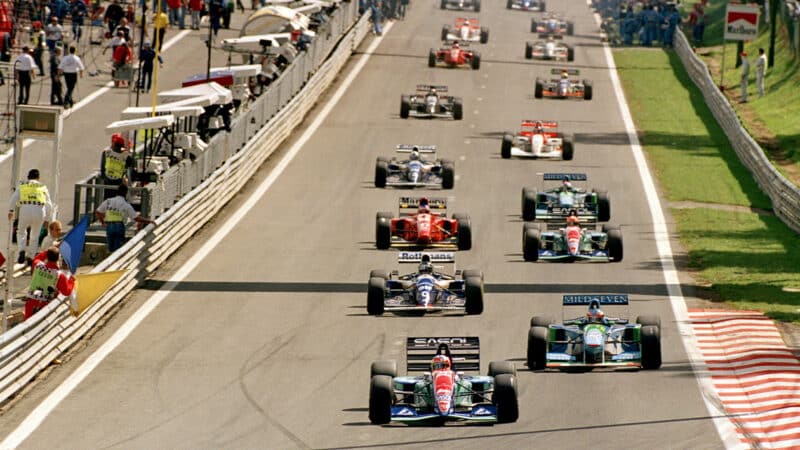
Barrichello leads Schumacher at Spa ’94 for Jordan
Pascal Rondeau/Getty Images
At the time, though, moving to Honda seemed a sound idea, and Rubens admits that his close friendship with Gil de Ferran — at that time working with the F1 team — played a part in his decision.
“Gil told me that Honda was very committed, that money was not a problem, and everything was looking good. The problem was, it didn’t turn out the way he thought it would! It was the wrong decision to fire [technical director] Geoff Willis — after he left, the team went downhill.”
By 2008 Jenson Button had effectively given up on Honda, and the team looked mainly to Barrichello to keep its motivation alive. Ross Brawn was aboard by now, but he had arrived too late to have any influence in the design of the latest car, another dog.
